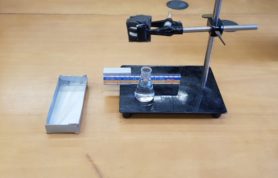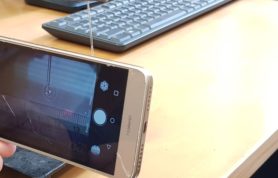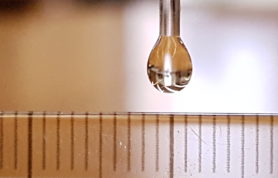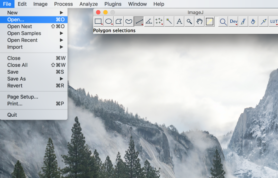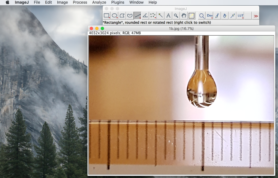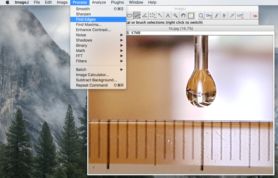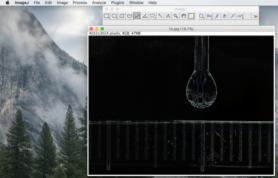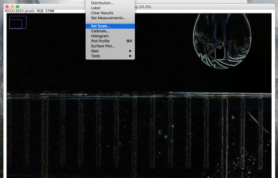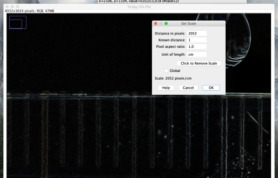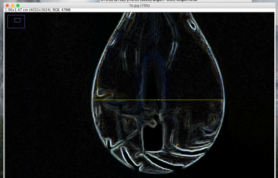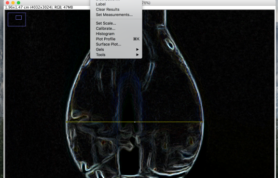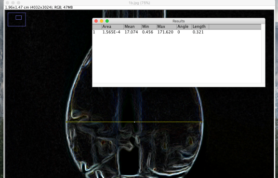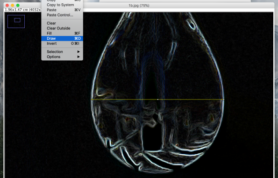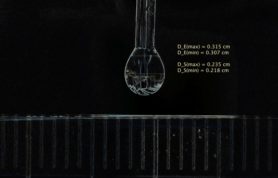| Student Manual | 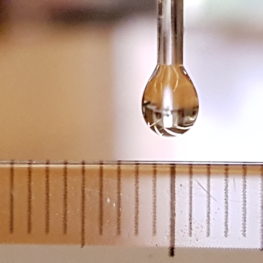 This experiment involves a simple method to determine the surface tension of a liquid, which in our case is water, by analyzing a drop formed at the edge of a tube containing the liquid. This technique is called the Pendant Drop Method since the liquid drop assumes a pendant shape under the influence of gravity. In this experiment, we will learn what surface tension is, its implications and how the dimensions of the pendant drop allow us to estimate its value. What is fascinating in this experiment is that the shape and form of the drop can provide quantitative insight about an important physical property. |
| Experiment Code | 1.20 |
| Version | June 25, 2018 V1 |
Further Readings and References
- Surface tension measurements with a smartphoneThe Physics Teacher, N. Goy, Z. Denis, M. Lavaud, A. Grolleau, N. Dufour, A. Deblais, U. Delabre, 55, 498, (2017).
- Surface TensionConceptual Physics, Paul G. Hewitt, 10, 261, (2006).
Pictorial Procedure
- ImageJ=1.52a unit=cm
